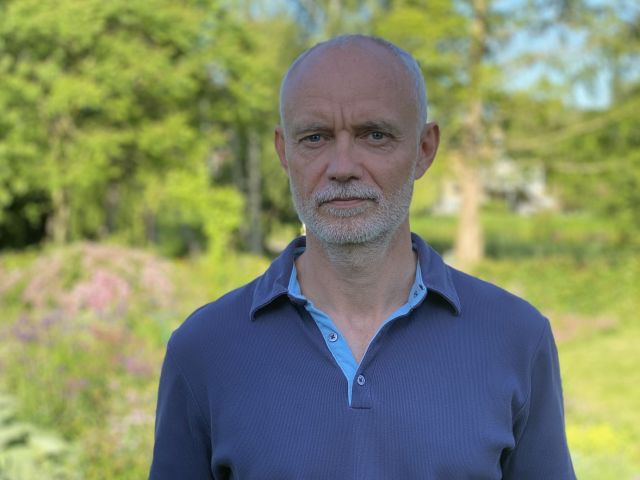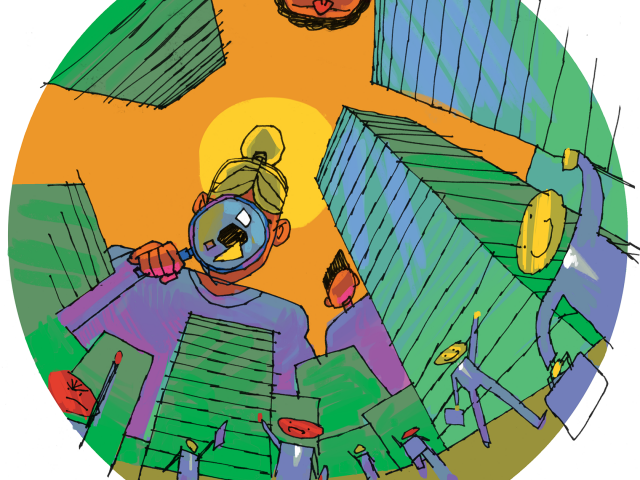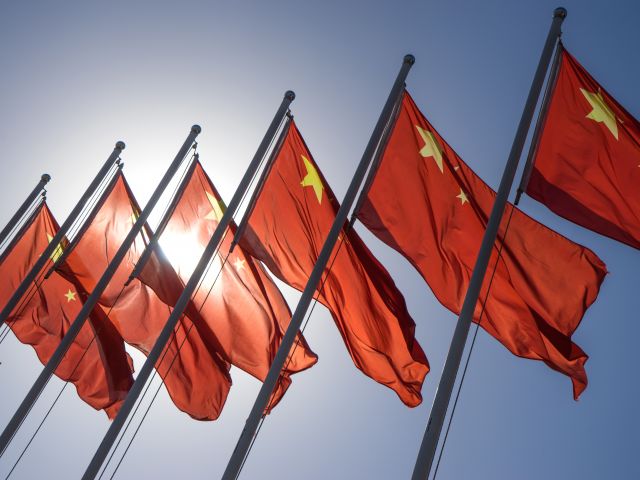Why the Danish Parliament’s statement on ‘politics dressed as science’ worries me

Lisa Ann Richy has written a column about the recent debate on freedom of research. (Photo: private)
Column | 22. Jun 2021
By Lisa Ann Richey, professor, CBS
This column is about my personal experiences with the recent struggles over research freedom in Denmark. When Danish politicians threaten the freedom of academic research, I am concerned because I have seen how the politicization of what ‘counts’ as knowledge has affected my friends and colleagues in Anglo-academia, breeding an illiberal culture of fear and self-censorship.
I am one of the initiators of the petition to support freedom of research in Denmark because, as a political scientist, I believe that science is always political, but need not be politicized.
Today, I am Professor of Globalization at Copenhagen Business School, one of the largest and highest-ranking business schools in Europe.
As a business university, CBS has an eclectic mix of faculty spanning those from the social sciences and humanities, including myself. I have continued to choose to work in Denmark because it has a strong university sector that still manages to prioritize talent and top quality, without sacrificing values of community engagement, family care and solidarity with people facing injustice. The Danish Parliament’s statement to ensure that Danish universities control that faculty like me are not producing ‘politics dressed up as science’ scares me.
A couple of months ago on Twitter, a Danish politician called out a course in which I lecture as a ‘bad’ example of CBS’s succumbing to ‘woke’ politics.
He asked: ‘Will there soon be any institutions of higher education where there is no wokeness? Not even CBS has escaped.’
In the course, my lecture was titled ‘Brand Aid and Commodified Compassion: Harnessing Heterogeneity and Community.’ Given that it drew on the work from a couple of books I have published with top university presses as well as ongoing research by my Danish-American-Tanzanian teams funded by The Independent Research Fund Denmark (Forskningsfond) and the Danish Foreign Ministry, I can probably defend this against our Parliament’s doubts that it could be ‘politics disguised as science.’
But I should not have to. The quality of this work was already guaranteed by a university law, a Program Study Board, student evaluations, the course coordinator and my active engagement with an international academic community of researchers. It is part of our university’s comparative advantage for ‘international outlook’ that attracts students wishing to learn about innovation, entrepreneurship, social enterprises, purpose-driven brands, corporate social responsibility, globalization, diversity and change management and how to engage in the wide world.
I have been employed as an academic researcher in Denmark for over 20 years, pay my taxes and union dues, listen to the Queen’s New Year’s speech and decorate my kids’ birthday cakes with little Danish flags. I am also a cisgender white woman who passed the citizenship exam and feel myself as integrated in Danish society as I do in the one where I was born.
So why am I scared by the Danish Parliament’s statement?
I have seen countries like the US and the UK go down the politicized path of divisive ideology and allow politicians to try to control what kinds of research topics, fields or theories are taught. I have already seen responses by researchers here in Denmark to the scapegoating of research environments and knowledge workers.
What will this mean for us, researchers at Danish universities?
Some, ‘safe’ researchers, will continue to do whatever we want, but perhaps a little more uneasily. Maybe we will ask ourselves, should I really put the word ‘race’ in the title of my lecture? This article is about the dangers of white feminist helping but should I perhaps tweak the focus just a bit so as not to cause a fuss? Should I tell students that when we read the original law review text by Kimberlé Crenshaw that this is actually what has come to be called ‘critical race theory’? Should I stop using those popular music videos when I teach difficult materials to undergraduates because someone might think they are not ‘scientific’ enough?
I’m starting to become concerned that perhaps I should be worried here too
The Minister of Higher Education and Science claims that over three thousand researchers have misunderstood the statement, and it was not meant as a call for more restraint by Danish universities to limit research freedom.
I am always up for a good debate over the interpretation of text, particularly over official political communications. Across the interpretive disciplines, we are always told to consider any text within its context. The context of this Parliamentary decision concerns me. When pressed by journalists, the Minister said that there have not been any actual problems here – no example of when ‘politics has been disguised as research’ in Denmark, but she referred to these problems ‘elsewhere.’
Yet, the Danish Parliament’s response to ‘no problem’ reflects familiar problems. These actual problems are about government controlling research freedom either directly or indirectly through funding or the lack thereof, devaluing of unpopular research fields, and allowing public intimidation of researchers by political figures.
Until now, when I read about university professors in the US being put onto ‘hit’ lists for organized public mockery, or more recently, about UK colleagues being fired or entire research environments, like the critical management studies in Leicester, being shut down simply for being too ‘critical.’ Leicester university also threatened to strip the ‘professor’ title from a finance faculty emeritus over his uncomplimentary engagement on Twitter. I felt angry and sympathy for my colleagues, but reassured about my choice of working in Denmark.
Here it is part of my job description to engage with society. Global crises like climate change, pandemics and political violence need the attention of all of us. Yet, now, I read that Denmark is at the bottom of UNESCO’s ranking for research freedom in Europe. When support for restricting research freedom was the purvey of ideologues in Denmark as part of their chest-thumping against things they don’t like such as feminists or migrants, I wasn’t really concerned that it would be taken seriously enough to have policy impact.
After all, in the US, over half of the Republican party members still believe that Trump won our last election. And in Denmark, we have a parliamentary democracy and coalition rule to moderate policy outcomes. But now that our Parliament’s statement has been signed by parties ranging from those that would be expected to uphold liberal values of freedom to those expected to support equality, I’m starting to become concerned that perhaps I should be worried here too.







































































































































I think the Danish Parliament’s concerns are valid. There is very much an ideological one-sided narrative being pressed onto students on campuses and it creates harm. The world is not a clear binary as often depicted with theories like CRT that label other ethnic minorities such as Asians or Jews as “white” oppressors, completely discrediting the discrimination they face and their histories. Criticisms of theories like CRT are not just called out by political conservatives as emphasized in this article, but also by the left if they dare to speak out. Many people fear saying anything because they will be ostracized and labeled as racist when in fact there are legitimate concerns when pressing theories that have no scientific backing and promote division rather than inclusion – this is a threat to freedom of speech and leads to illiberalism. History about racism and slavery should be taught in education but weak theories like CRT are not the answer.
The author also shows her bias when stating “in the US, over half of the Republican party members still believe that Trump won our last election”. She fails to acknowledge that this extremism occurs on both sides of the political spectrum – just as many Democrats failed to believe that Trump won in 2016 and Republicans struggled to believe that Biden won in 2020. This extremism occurs on both sides and it is very dangerous to only call it out when it fits with one’s political narrative.